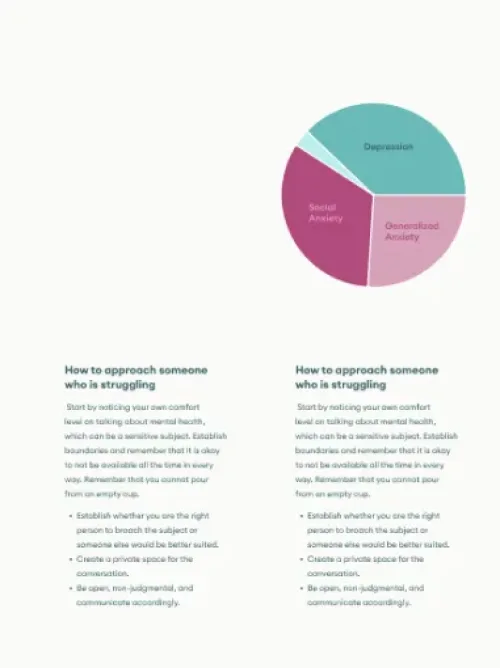Effective Strategies for Leaders to Help Improve Employees’ Emotional Health

2 Minute Read
Emotional health has a direct impact on the quality of life employees experience – in and out of the workplace.
If we allow our emotions to overwhelm us, especially over a long period of time, we could be doing more harm than good for our overall health, and this could impact our ability to perform well at work and function normally at home.
In order to help your employees better regulate their emotions, here are some strategies our experts recommend sharing with them that can be applied in the workplace and at home:
Practice self-awareness and acceptance
Oftentimes, people try to suppress their emotions. Unfortunately, this is an ineffective way of dealing with them. Instead, experts encourage people to acknowledge the emotions they’re experiencing by asking themselves: “Do I feel sad, disappointed, angry, or hurt, etc.?” By exploring our emotions and actually naming what we’re experiencing, it can help us pinpoint what the actual cause is and allow us to effectively address it.
Additionally, our experts encourage you to provide your employees with the opportunity to address their emotions throughout their workday. If they feel overwhelmed, allow them to step away from their environment for a moment and address their feelings – without fear of being reprimanded. This goes for those working virtually as well. Otherwise, suppressing emotions during our day could lead to tension and conflict among colleagues and affect morale and productivity.
Leverage mindfulness
Mindfulness is another great strategy for regulating our emotions. By definition, mindfulness is the practice of observing your thoughts and emotions without judgment. Essentially, it is an effective way of resetting our brains or giving them a break, by way of solely focusing on physical sensations and not giving into deep thought. After a mindfulness session, many people feel calmer and more relaxed.
Mindfulness can easily be integrated into the workplace whether in-person or virtually at lunch or during breaks throughout the day.
Seek emotional support
Sometimes, we need a bit of support to help us make sense of our emotions, and that’s okay. A mental health professional can guide employees with specific and beneficial strategies to address their struggles.
Since one of the most difficult things someone can do is ask for help, it’s important that your employees are aware and feel comfortable with the resources available to them. In addition to e-mail campaigns, articles, and webinars, consider reminding them verbally anytime you have a meeting with them and let them know of the supports available to them. More importantly, ensure that you have an open-door policy that allows your employees to actively reach out as needed.




